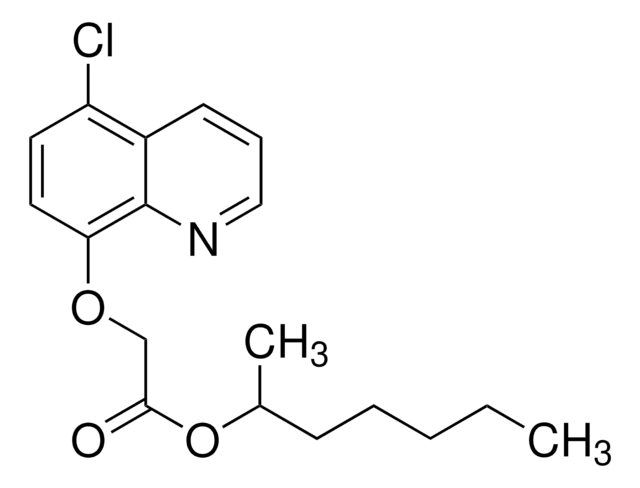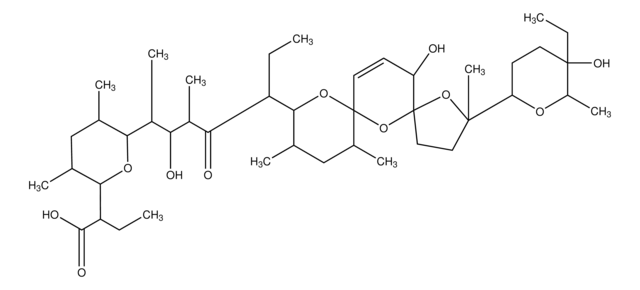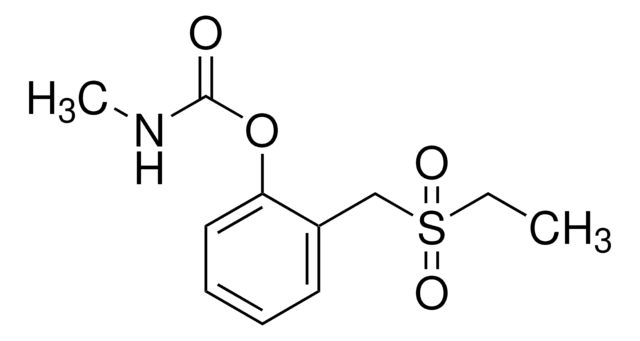About This Item
Recommended Products
grade
analytical standard
Quality Level
product line
PESTANAL®
shelf life
limited shelf life, expiry date on the label
technique(s)
HPLC: suitable
gas chromatography (GC): suitable
application(s)
agriculture
environmental
format
neat
storage temp.
−20°C
SMILES string
CCC\C(=N/OCC)C1=C(O)CC(CC(C)SCC)CC1=O
InChI
1S/C17H29NO3S/c1-5-8-14(18-21-6-2)17-15(19)10-13(11-16(17)20)9-12(4)22-7-3/h12-13,19H,5-11H2,1-4H3/b18-14+
InChI key
CSPPKDPQLUUTND-NBVRZTHBSA-N
Looking for similar products? Visit Product Comparison Guide
General description
Sethoxydim is not approved for its use in the European Union. Maximum residue levels (MRLs) have been set according to Reg (EC) No 839/2008 for sethoxydim (to be calculated as the sum of sethoxydim and clethodim including degradation products) for various products of plant and animal origin from 0.05 to 1 mg/kg.
Application
The analytical standard can be used to:
- Study the inhibition effect of acetyl-CoA carboxylase in barley chloroplasts using cycloxydim, sethoxydim, and clethodim herbicides
- Study the photochemical changes and oxidative damage in four foxtail millet varieties after exposure to sethoxydim
- Study the resistance mechanism of chloroplastic acetyl-CoA carboxylase from green foxtail (Setaria viridis L. Beauv.) towards cyclohexanedione herbicide sethoxydim
- Study the inhibition mechanism of acetyl-CoA carboxylase by sethoxydim and haloxyfop using a semipurified enzyme preparation extracted from black Mexican sweet maize
- Evaluate the tolerance of 11 grass species used in minimal-to-no-mow turf areas to three postemergence herbicides applied at one- and twofold recommended label rates
- Generate sethoxydim-resistant mutants of Micractinium sp. by UV-C mutagenesis for increased cellular triacylglycerol (TAG) without compromising on growth rate
Legal Information
Hazard Statements
Precautionary Statements
Hazard Classifications
Aquatic Chronic 2
Storage Class Code
10 - Combustible liquids
WGK
WGK 2
Flash Point(F)
Not applicable
Flash Point(C)
Not applicable
Personal Protective Equipment
Choose from one of the most recent versions:
Already Own This Product?
Find documentation for the products that you have recently purchased in the Document Library.
Our team of scientists has experience in all areas of research including Life Science, Material Science, Chemical Synthesis, Chromatography, Analytical and many others.
Contact Technical Service









